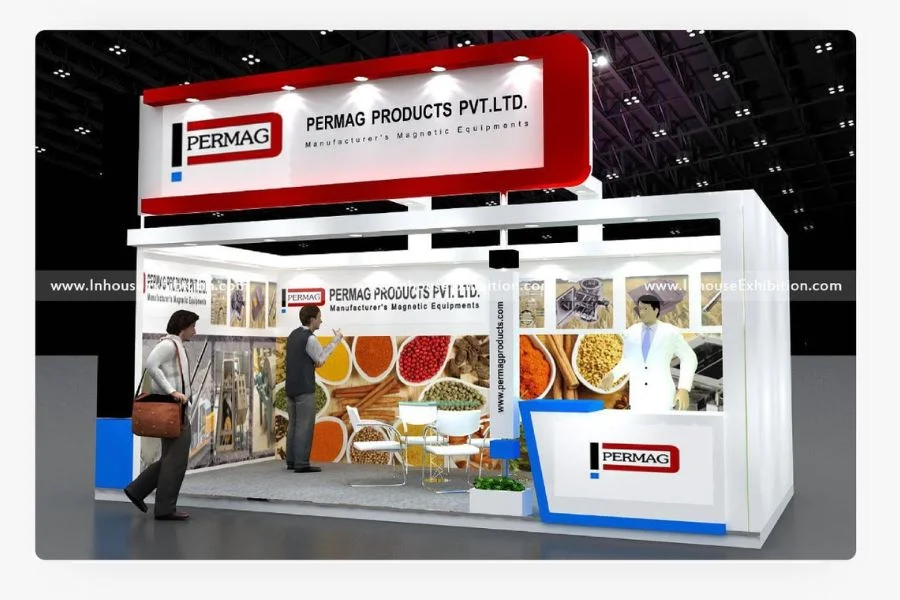Food processing is a multi-billion-dollar industry that involves the transformation of raw ingredients into finished products that can be consumed by humans. Technology advancements in the food processing industry have led to greater productivity, higher quality, and less waste over time.
The future of the food processing industry looks promising as the demand for processed food continues to increase due to changing lifestyles, rising incomes, and urbanization.
The food processing sector will need to evolve to keep up with the rising demand for food as the global population approaches 9.7 billion in 2050. The blog will focus on trends, forecasts, and the future of the food processing business.
Trends in the Food Processing Industry
Automation:
The use of automated machinery is on the rise in the food processing sector. Automation in the food industry has led to greater productivity, lower labor costs, and higher quality end results. Automation is particularly useful in repetitive tasks, such as sorting, grading, and packaging.
Sustainable Food Processing
The sustainability topic is rising in importance for both customers and companies. Even the food processing sector is not immune. Reducing waste, conserving resources, and using methods that are gentler on the environment are all essential components of sustainable food production. Use of solar and wind power, as well as other renewable energy sources, and the adoption of waste-reduction policies are examples of this
Clean Labeling
There has been a rise in the clean labelling movement in recent years. With clean labelling, you can rest assured that all of the ingredients are 100% natural and there are no harmful chemicals lurking in the background. Clean labelling is one way to appease customers who worry about what they’re putting into their bodies.
Plant-based Foods
There has been a rise in the popularity of plant-based diets as people grow more health- and environmentally-conscious. Moreover, plant-based diets are more environmentally friendly than meat and dairy diets. The food processing industry has been making strides to meet this demand by creating novel plant-based products and enhancing the flavour and texture of existing ones.
Personalized Nutrition
Customized nutrition refers to the practise of adapting food options to meet the unique dietary requirements of each customer. Recent technological developments, such as those in genetic testing and wearable gadgets, are largely responsible for this shift. The food business is adapting to this movement by creating individualised nutritional supplements.
Increased Use of Robotics and Artificial Intelligence
The use of robotics and artificial intelligence in the food processing industry is expected to increase in the coming years. Robotics and AI can help to improve efficiency and reduce labor costs, which are major concerns for food processing companies. Robotics and AI can also help to improve product quality by ensuring consistency in production. ‘
Increased Focus on Food Safety
Food safety will continue to be a major concern for consumers and businesses in the food processing industry. Advances in technology, such as blockchain and DNA testing, will help to improve food safety by allowing for greater traceability and transparency in the supply chain.
What is the future growth of the food processing industry in India?
In India, the food processing industry is expected to grow at a compound annual growth rate (CAGR) of 11.4% between 2021 and 2026. The scope of the food processing industry in India is vast, given the country’s large population, rising incomes, and increasing demand for processed food. The Indian government has also been promoting the food processing industry through various initiatives, including tax incentives, subsidies, and the establishment of food parks.
Growth of food processing industry in India
The growth of the food processing industry in India is expected to be driven by factors such as increasing urbanization, growing middle class, and rising demand for convenience foods. Additionally, the implementation of advanced technology and sustainable practices will play a significant role in the future growth of the industry.
The food processing industry in India has tremendous potential as it can provide employment opportunities and contribute to the country’s economy. However, there are challenges such as inadequate infrastructure, lack of skilled labor, and food safety concerns that need to be addressed for the industry to realize its full potential. The forecast for the future expansion of the food processing sector in India is positive, and it is anticipated that the industry will play a key part in the expansion of the economy of the country.
Key trends that can Shape Food Industry
Working to create healthy foods
Food must satisfy much more than just appetites. Whether aiding a consumer’s athletic aspirations, cognitive performance, or another facet of health maintenance, foods and beverages increasingly go beyond convenience, enjoyment, and satiety claims. To thrive in the coming decades, businesses will need to concentrate their product development efforts on “healthier” products and specialized performance-related chemicals
Integrating ubiquitous sensing
As sensors get smaller, more affordable, and more potent, their incorporation into all processes becomes essential. They are in charge of keeping an eye on things like how safe our food is to eat and how well it is for the general public. Keeping one’s company ahead of the curve in this area is predicted to lead to increased productivity and profits in the coming years.
Enhancing sustainability
Greenwashing and corporate boasts will not cut it in the future. Everything from packaging to production to distribution must be geared towards maximising output while decreasing input.
Adapting to new organisational frameworks
To be competitive with smaller, more nimble competitors, large food firms will need to implement subscription and delivery alternatives, personalisation, food safety and traceability, and the adoption of digital tools to drive faster, less expensive food innovation.
Understanding future consumption
Certain changes have been expedited by COVID-19, but others were already profoundly altering consumption patterns. It’s crucial to anticipate the needs of a product’s demographic or target market to give it a long shelf life.
Understanding the role of the microbiome
From production procedures to diagnostics, mastering this domain will determine the success or failure of food companies, according to polls. Insights into the function and makeup of microbial communities are just beginning to be explored by the business world.
Conclusion
The future of the food processing industry is likely to be shaped by trends such as plant-based foods, clean labeling, functional foods, sustainability, automation, personalization, and digitalization. Businesses who can respond to these shifts and introduce novel features to their offerings will be in a strong position to grow in the coming years.
Permag has 30 years of experience assuring food safety and preventing contamination during food processing. Being the food processing magnetic equipment manufacturer in India, our equipment is developed to enhance the value, quality, and flavor of the food products we produce.


